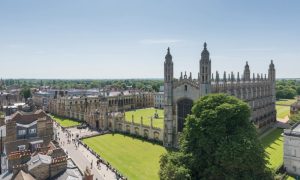successesImmigration to the United StatesHow to quickly adapt to the local life is a major challenge for every newcomer.immigrantsThe important issues that all of you will encounter. Here we provide detailed guidance on language learning, socialization, housing, work, transportation, children's education, etc., to help yourecent immigrantsQuickly assimilate into your new life in the U.S.
1. Improvement of English language skills
multilingualismIt is the first step in integrating into American life. Even if you have some basic English, you still need to improve your listening and speaking skills for everyday communication, work and all aspects of life. This can be done by attending local English classes (such as a community college or adult education center) or by studying on your own using online resources such as Duolingo, YouTube, or ESL classes.
tip: Communicate more with locals, such as taking the initiative to communicate in stores and banks. In addition, watch more American dramas and movies to develop a sense of authentic language and familiarize yourself with American culture.
2. Understanding and participating in local communities
Social Circleaidrecent immigrantsAn important part of integrating into your new life. Social circles can be established by participating in interest groups, community activities, religious events, etc. In addition, many cities have specialized immigrant communities or clubs where friends from the same cultural background can be found, adding a sense of security to life.
tip: Community centers and libraries often host free events and lectures, and you can join in volunteering to make new friends and learn more about the local culture.
3. Finding suitable housing
shelterIt is the foundation of immigrant life. You can rent an apartment first in order to get used to the environment before deciding whether to buy a house. Rent in the U.S. varies greatly depending on the city, and prices in large cities are relatively high. We recommend using some rental platforms (e.g., Zillow, Apartments.com) to learn about the availability and price of housing in different areas.
tip: When renting an apartment, read the contract carefully, understand the rent, deposit and other terms, and make sure you choose a living situation that suits your needs and budget.
4. Establishment of a credit history
credit historyVery important in everyday life in the U.S., credit scores are involved in everything from renting an apartment to getting a loan to applying for a credit card. For new immigrants, who may not have a credit history when they first arrive in the U.S., you can gradually build up your credit by opening a bank account, applying for a credit card with no annual fee, and making payments on time.
tip: Use your credit card as much as possible and pay it off on time to build up a good credit history for future large purchases (e.g., buying a car or a house).
5. Adapting to the work environment
Workplace culturePerhaps different from your home country, the American workplace emphasizes teamwork, communication, time management and efficiency. To adapt to the new environment, you can learn about the company culture on platforms such as LinkedIn, attend workplace skills training, and learn about career trends in your industry. In addition, you can also find suitable job opportunities through Networking events and career fairs.

tip: In the United States, resume format and content may differ from other countries. Before applying for a position, make sure that your resume conforms to U.S. workplace customs.
6. Familiarity with transportation and travel modes
Transportation systems in American cities vary from place to place.large citiesGenerally have more developed public transportation (e.g., subways, buses), while smaller cities or suburbs rely more on cars. Therefore, it is important to choose your mode of travel according to the transportation conditions of your location. New immigrants can apply for a driver's license at their place of residence to facilitate travel.
tip: You can use tools such as Google Maps and the Bus App to familiarize yourself with public transportation routes, while learning local traffic rules to ensure safe driving.

7. Organization of children's education
Children's educationis an important consideration for new immigrant families. The U.S. education system is divided into public and private, with public schools generally divided by residential neighborhoods, allowing families to choose schools based on where they live. In addition, many schools have specialized counselors to help new immigrant children adjust to their new environment.
tip: You can help your child make a smooth transition by visiting the school and communicating with teachers and school authorities about the school's educational resources and curriculum.
8. Learning about the United States health-care system
healthcare systemIt is a major feature of the U.S. that healthcare costs are high and it is advisable to purchase health insurance in a timely manner. Medical care in the U.S. is divided into public and private hospitals, and new immigrants can choose a suitable insurance plan through their employer or the marketplace. Many communities have free clinics or health services to support low-income residents.
tip: Understand what health insurance covers, familiarize yourself with the hospital visit process, and maintain regular health checkups.
9. Understanding the U.S. tax system
AmericanTax systemIt is complicated and all income is subject to tax filing. New immigrants can learn about the tax filing process through tax filing software (e.g. TurboTax) or by consulting a tax professional. It is recommended to keep records of relevant income and expenses for tax filing purposes.
tip: While working, pay attention to tax benefits offered by your company, such as retirement plans, 401(k)s, etc.
concluding remarks
United States ImmigrationThe process of adapting to life can take some time, but through language enhancement, integration into the community, establishing credit and familiarizing oneself with taxes, new immigrants can quickly adapt to the American way of life. Immigration is a fresh start, and it can be a rewarding experience while meeting the challenges. We wish every new immigrant a happy life and a bright future in the United States.






